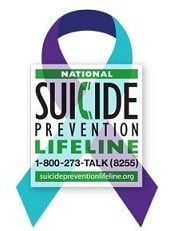Denial.
At this stage, you don’t admit the loss has occurred/will occur. Or, with chemical dependency, you don’t believe that alcohol or drugs have caused you any problems. It can also mean you think you can control your substance use any old time you feel like it. But other people in your life don’t agree. Try this: write the word “denial” then write one reason why you think your relationship with drugs or alcohol hasn’t caused you any problems.
Bargaining.
Translation: “Let’s make a deal.” You think you can somehow negotiate so as to not experience the loss. Or, with chemical dependency, get yourself out of the trouble your alcohol or drug use has caused. Examples might be: “Give me one more chance, Mom and I promise I’ll never…,” or “Dear God, if you’ll just help me out this one time, I’ll stop using for good.” Try this: write one “deal” you’ve made to remove yourself from the chaos caused by your drinking or drug use.
Anger.
You feel angry that you have lost/or are losing something dear to you. Or, with substance abuse, when you have a problem but feel angry at having to give it up. “I don’t want this disease,” “This isn’t fair! I’m too young to have this problem,” or “I don’t want to quit drugs” are examples of the anger stage.
Depression/Pain.
You’re experiencing pain, hurt and/or sadness for your loss. Or, with substance abuse, it’s feeling hopeless yet admitting that now is the time to give up your destructive behavior. It’s the time when you face the truth of what drug use and/or drinking have done to you (and those around you). You need to feel this sadness and hopelessness; they are vital parts of your recovery. Feeling this way is normal and it is important to share these feelings with someone you trust.
Acceptance.
This is when you ultimately accept the loss. Or, with substance abuse, you accept that you have a problem, which is different from admitting that you have a problem. This time you “own it” and are taking responsibility for dealing with your problem. You are choosing to take action.






